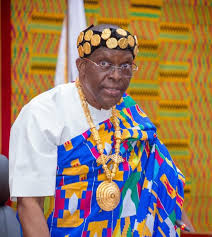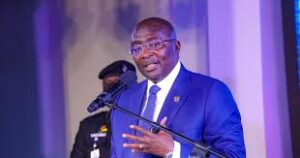Speaker Advocates for an Inclusive Governance Framework

Speaker Calls for Expanded Governance Framework Involving Broader CSO Participation
Alban Sumana Kingsford Bagbin, the Speaker of Ghana’s Parliament, has called for a governance framework that extends beyond the traditional parliamentary democracy model by fostering greater participation from civil society organizations (CSOs). He underscored the importance of CSOs in shaping Ghana’s democratic system and emphasized that more inclusive engagement is essential to strengthen the country’s governance structure.
The Speaker made these remarks during a significant dialogue session with various CSOs and think tanks, an event designed to enhance collaboration and reaffirm Parliament’s commitment to transparency, accountability, and active citizen involvement. The forum, titled “Embracing Inclusivity, Engagement, and Collaboration with the Parliament of Ghana,” brought together leading CSOs, including IMANI Africa, the Ghana Integrity Initiative, the Ghana Centre for Democratic Development (CDD-GH), Parliamentary Network Africa, the Institute for Democratic Governance (IDEG), and several others.
Mr. Bagbin lauded the invaluable role of CSOs in policy-making, particularly in contributing through research, advocacy, and data-driven recommendations. He highlighted the positive impact of civil society contributions in shaping several key parliamentary reforms, such as anti-corruption measures and improvements to local governance.
The Speaker also referred to Ghana’s commendable standing in the 2022 Africa Open Parliament Index, where the country ranked highly. He pointed out that this recognition reflects Parliament’s ongoing commitment to democratic reform, which has been supported by continuous partnerships with civil society. “These reforms show that Parliament is dedicated to enhancing its democratic processes by working together with civil society,” he said.
Focus on Gender Equity
A central issue that Mr. Bagbin passionately addressed was gender equity. He reiterated the significance of the Affirmative Action Act, which mandates the promotion of gender equity in governance and across all sectors. While acknowledging the gradual progress made in this area, he called for more comprehensive initiatives to achieve greater gender balance in leadership positions. He particularly stressed the need for support for the Affirmative Action (Gender Equity) Act, 2024, Act 1121, urging further commitment to ensuring equal opportunities for both men and women in the political and governance spheres.
Technological Advancements and Citizen Engagement
Emmanuel Bedzrah, the Chair of the Open Government Partnership (OGP) Caucus in Parliament, also addressed the dialogue. He shared that Ghana had recently received recognition at the Regional Meeting for Africa and the Middle East. He emphasized the growing role of technology in facilitating better communication and interaction between Parliament and the public, noting that updates to Parliament’s website and its data platforms have been crucial in meeting the demands of citizens.
Despite these advancements, Bedzrah highlighted that there is still much work to be done to deepen Parliament’s relationship with the public. He referenced an upcoming Action Plan that will be launched soon, which is designed to further bolster the engagement between Parliament and citizens, ensuring the country’s governance remains transparent, accountable, and responsive.
Civil Society Perspectives
CSOs at the dialogue session commended the Speaker’s strong commitment to fostering inclusive governance, particularly his advocacy for greater female participation in leadership roles. However, some participants expressed concerns over the underrepresentation of women in certain parliamentary committees. They particularly pointed out committees related to health, where women’s perspectives are essential, as areas where gender representation was lacking. As a result, they called for constitutional reforms to ensure that women have a more significant presence in decision-making roles.
The CSOs also advocated for the full implementation of the Open Government Partnership Action Plan, highlighting that this would serve as a crucial step toward enhancing transparency and accountability within the government. They stressed the need for continuous and meaningful collaboration between civil society and Parliament to address pressing national issues and foster a governance system that truly reflects the interests and concerns of all citizens.
In conclusion, the high-level dialogue underscored the importance of expanding the scope of Ghana’s governance framework to include a more diverse and inclusive range of voices, particularly from civil society. The collaboration between Parliament, CSOs, and the public is seen as key to driving reform, enhancing democratic processes, and ensuring that governance remains accountable, transparent, and responsive to the needs of all Ghanaians.






